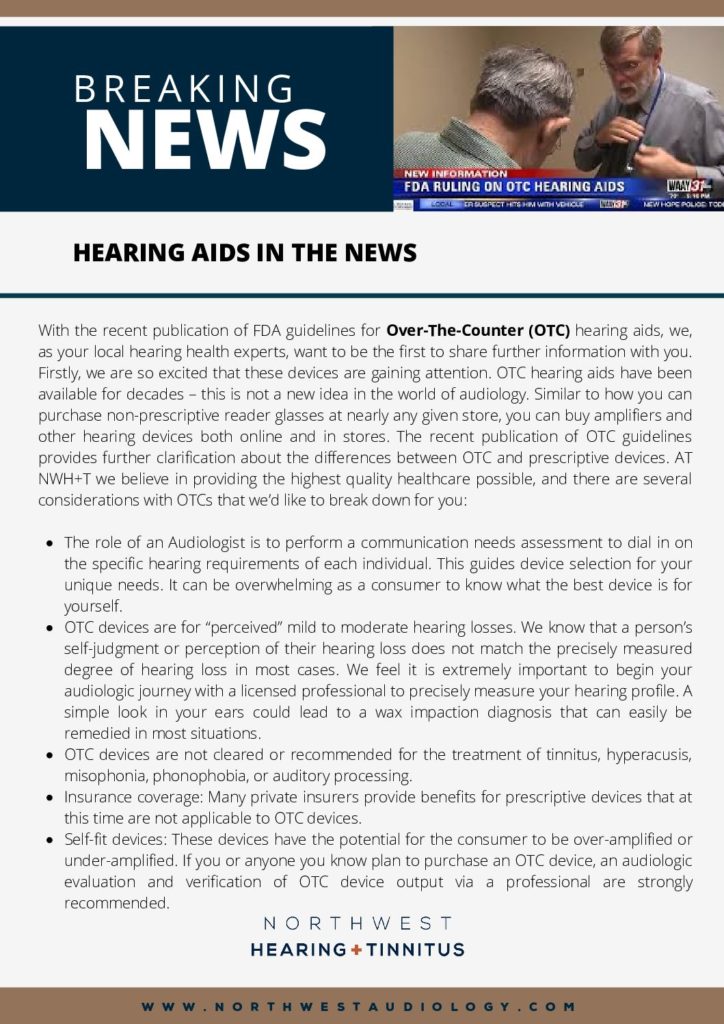Over the Counter Hearing Aids

With the recent publication of FDA guidelines for Over-The-Counter (OTC) hearing aids, we, as your local hearing health experts, want to be the first to share further information with you. Firstly, we are so excited that these devices are gaining attention. OTC hearing aids have been available for decades – this is not a new idea in the world of audiology. Similar to how you can purchase non-prescriptive reader glasses at nearly any given store, you can buy amplifiers and other hearing devices both online and in stores. The recent publication of OTC guidelines provides further clarification about the differences between OTC and prescriptive devices. AT NWH+T we believe in providing the highest quality healthcare possible, and there are several considerations with OTCs that we’d like to break down for you:
- The role of an Audiologist is to perform a communication needs assessment to dial in on the specific hearing requirements of each individual. This guides device selection for your unique needs. It can be overwhelming as a consumer to know what the best device is for yourself.
- OTC devices are for “perceived” mild to moderate hearing losses. We know that a person’s self-judgment or perception of their hearing loss does not match the precisely measured degree of hearing loss in most cases. We feel it is extremely important to begin your audiologic journey with a licensed professional to precisely measure your hearing profile. A simple look in your ears could lead to a wax impaction diagnosis that can easily be remedied in most situations.
- OTC devices are not cleared or recommended for the treatment of tinnitus, hyperacusis, misophonia, phonophobia, or auditory processing.
- Insurance coverage: Many private insurers provide benefits for prescriptive devices that at this time are not applicable to OTC devices.
- Self-fit devices: These devices have the potential for the consumer to be over-amplified or under-amplified. If you or anyone you know plan to purchase an OTC device, an audiologic evaluation and verification of OTC device output via a professional are strongly recommended.